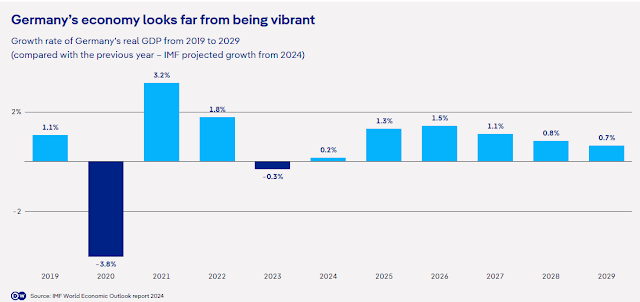Germany's Economic Crisis and Opportunity: Lessons from Mergers & Acquisitions and Volkswagen
The German economy is currently caught in a whirlwind of significant changes. Traditionally known for its strong manufacturing sector and technological prowess, Germany has been telling a very different story in recent years. Many German companies have been acquired or merged with foreign capital, and the production cuts at Volkswagen in Germany are one of the most striking examples of this shift. What message do these changes convey about the German economy, and how can we turn this crisis into an opportunity?
German Companies Acquired by Foreign Capital Amid Global Competition
In the past three years, German companies have been acquired or merged on a large scale by Chinese, Indian, and Middle Eastern investors. German manufacturers, with their advanced technology and global brand recognition, have become attractive targets for foreign investors. For example, the acquisition of the German robotics company KUKA by Chinese investors symbolizes the outflow of German manufacturing technology abroad.
However, the impact of these mergers and acquisitions on the German economy is not entirely positive. According to recent reports, there were approximately 1,140 M&A deals involving German companies in 2022, with Chinese and Middle Eastern capital taking a significant share. This trend raises concerns about the weakening of Germany's economic independence and technological leadership, as key assets and technologies are transferred abroad.
Volkswagen's Crisis: The Shock of Production Cuts in Germany
Volkswagen, one of Germany's most iconic automakers, has faced significant challenges in recent years. Despite efforts to transition to electric vehicles, Volkswagen has struggled against low-cost Chinese EV manufacturers and technological competition. In the first half of 2024, Volkswagen's cash flow stood at -100 million euros, a stark contrast to a positive 250 million euros during the same period in the previous year.
Moreover, declining sales in the Chinese market have further exacerbated the situation. In 2023, Volkswagen's sales in China dropped to nearly half of what they were a decade ago, adding to the burden of operating German factories. This situation at Volkswagen serves as a warning for the entire German economy, with declining productivity impacting not only the auto industry but also other sectors.
Turning Crisis into Opportunity: Recommendations for Germany's Future
The German economy is at a critical crossroads. The traditional reliance on manufacturing may no longer be sustainable, and several changes and innovations are required to secure future growth.
Invest in Emerging Industries: Germany needs focused investments in emerging sectors such as biotechnology, green technology, and artificial intelligence (AI). The German government has already invested 2 billion euros in the semiconductor industry to lay the foundation for the future. This effort must extend across other industries.
Improve Cost Structure: Germany is losing competitiveness due to high labor and energy costs. To address this, reducing energy costs and labor market reforms at the government level are essential. Given that energy costs are among the highest in Europe, increased utilization of renewable energy sources could help reduce expenses.
Accelerate Digital Transformation and Innovation: The manufacturing-centered German economy must embrace digital transformation. Enhancing industrial automation and expanding digital infrastructure will improve productivity and create new competitive advantages.
Conclusion: Finding Opportunity in Change
The German economy is facing immense challenges, but if managed well, these challenges can be transformed into new opportunities. Germany should not rest on the laurels of its past but instead pursue an innovative transition to future industries to regain its leadership position in the global economy. Volkswagen's situation clearly illustrates the reality Germany faces while also pointing to the direction it needs to take. It is time for Germany to recognize the need for change and take decisive action.




